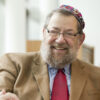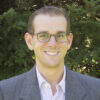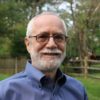“Land is imbued with holiness, which means that like God, it is beyond human measures of usefulness or control” As we prepare to close the Book of Leviticus, the Torah’s pinnacle, we are left with a message of responsibility, consequences, and possibilities. God presents us with the benefits of making wise choices and the consequences of choosing poorly. Then the Torah provides for the funding of the sanctuary and its staff: our participation with monetary support, pledges of animals or homes. But when it pivots to pledges of land, the Torah shifts gears entirely. Land, you see, is ours to borrow and to use. But humans presume they can own land. In reality, the land makes its claim on us, and we can either open ourselves to its ground rules, or we risk a rootlessness that leaves us clinging when the next sandstorm swirls. We are, as the book reminds us, “resident strangers (Leviticus 25:23)” on earth. The Land precedes us and the land will bury us when we no longer need our bodies. We are dust, and we return to dust (Genesis 3:19). On some deeper level of reality, it is all just dust, earth, soil. Judaism directs our […]
















